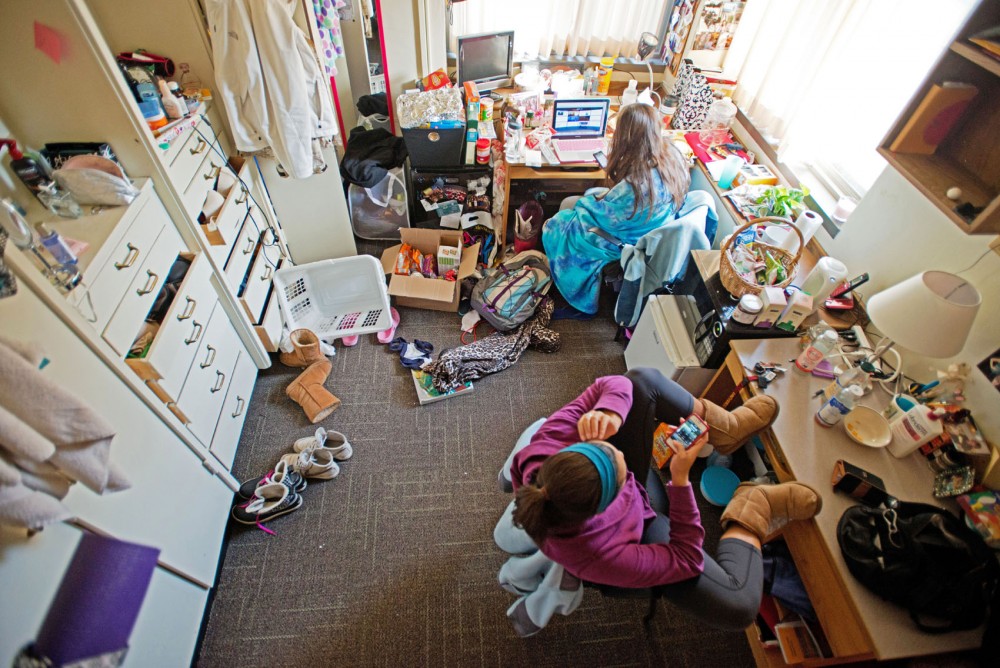Mid-semester residence switches are a fact of life for some students in University of Minnesota residence halls.
Because University policy guarantees housing to all first-year freshmen who apply before May 1, living in study lounges or rooms with an added bed is sometimes inevitable.
A quarter of the 350 students living in expanded housing this year have already moved out, said Mannix Clark, Housing and Residential Life spokesman.
The goal of the currently under-construction 17th Avenue Residence Hall is to reduce the number of students in expanded housing, he said. The hall will have 600 beds and consist mostly of double occupancy rooms.
Overflow students have previously been housed in the Days Inn on University Avenue, but Clark said this is “not a good option” because the hotel has been filling up frequently since the opening of TCF Bank Stadium.
Biology freshman Sam Voss lived in a Territorial Hall study lounge with four others for the first few weeks of fall semester.
He said it was hard to study, and he couldn’t find much quiet in his “compact” room, but he ended up enjoying the experience.
Yanisa Haley, a sophomore, had a similar experience in 2011 and said she thought the University “handled it really well.”
She said living in expanded housing was a good experience for the first semester because it allowed her to meet new people and was cheaper than standard housing.
An expanded double room is $527 less per person than a standard double occupancy room for the 2012-13 academic year, according to the Housing website.
The University tries to make “the most positive experience possible” by moving students in expanded housing within the same residence hall, Clark said.
He said Housing aims to be as flexible as possible and typically doesn’t move students out of expanded housing after Thanksgiving break to avoid disrupting preparation for final exams.
The University of Wisconsin-Madison has a similar system to move students out early.
David Swiderski, spokesman for the university’s housing department, said the school always moves students out of expanded housing by November. The university has an agreement to lease spaces from Madison’s agriculture department until classes start that month, he said.
Madison had 51 students living in expanded housing this fall and a total capacity of about 7,200 students in its residence halls.
The University had about 350 beds fewer than the approximately 6,700 students who signed up for housing in 2012-13, Clark said.
Justus Fenner, a computer science freshman, said his mid-October move from expanded housing was an easy process. He was given two weeks to complete the move, and he still keeps in touch with his old roommates.
Clark said most University students handle the transition out of expanded housing well.
“Our students are resilient.”


